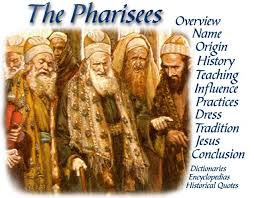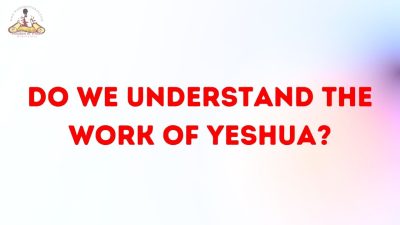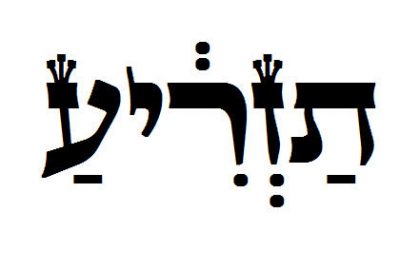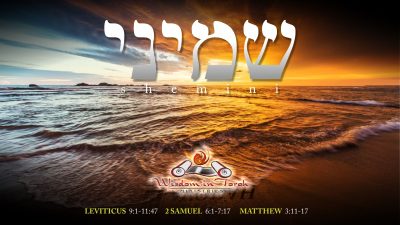
Don't Forget to
The Context of the First century writings will be our focus of study in this series. I will show the beliefs and dogmas of each religious groups and its political influences. Also, we will study the core issue in the first century and the hate the house of Shammai displayed against the Goyim.
How many types of Pharisees in the First Century?
The Jerusalem Talmud also criticizes the Pharisees in like manner. The Talmud describes seven types of Pharisees, five of whom are hypocrites, and two that are good:
Hypocrites
- The Pharisee "shoulder" exhibited their good works before men as if they carried a badge of honor on your shoulder or chest. Yeshua began his allegations with references to this type of Pharisee (Matt. 23:4).
- The Pharisee "expect to see" someone would ask him to wait a moment to see who could perform some charity.
- The "blind" Pharisee close its eyes to avoid seeing a woman, even if it meant stumbling or bumping against the wall.
- The Pharisee "mortar" walked with his head down to avoid seeing any temptation.
- The Pharisee "counter" was always telling his good deeds to see if countered his evil deeds.
Good Pharisees:
- The "God-fearing" Pharisee, who was a good and virtuous man
- the Pharisee "lover of God", who had a real love of Elohim
The Priestly family:
- AnásBen Seth(6- 15)
- Eleazar Ben Ananus (16- 17)
- Joseph Ben Caifás (18-36/37), married to the daughter of Anás(Juan 18:13 )
- Jonathan Ben Ananus (36- 37)
- Teófilo Ben Ananus (37- 41)
- Matthias Ben Ananus (43)
- Ananus Ben Ananus (63)
Oops, this is members-only content
This page requires at least a Basic level membership to access the teaching.
Audio
Oops, you don't have access to this content
Resources
The following is a list of recommended resources for this teaching:
- No additional resources at this time...
Categories
34 thoughts on “First Century Context of the First Century Writings (Complete Series)”
Leave a Comment
You must be logged in to post a comment.







Rico, I love it! Thanks for opening this subject. I have heard both the first and second parts, and I am ordering the books you have mentioned. Imperial Cult is virtually unknown in most circles, and I want to have a much better understanding. I have read the Wikipedia articles, and I’m sure it goes much deeper in depth than that. Blessings and Shalom to you for opening this topic. It is exactly what we need to understand the first century writings. Thank you so much!
The 4th of July is national; some forms of Christianity are “nationalists” that is they put Jesus and patriotism on the same plain. That is what happened in EU counties the kings got to choose the nat’l religion.
Typically, we may put our hands on our heats and say pledge of allegiance; These are vows; broken vows come with consequences. It says at one time, “one nation under G-d” God not a name; can be any god. Can a man pledge allegence to US and also the Shema? Can a man have two masters? There is I don’t know why dual citizenship.
So for some it be hard to walk in Torah; consider at Kol Nidre; renouncisng and vows and oaths that were put on thf ancestors. I make no pledges of allegiance accept to HaShem and His Covenant; is just me.
If one only knows and understands the ‘tradition” then indeed they loose the purpose; which was originally to continue to teach this historical significance; so even in Constitution and Bill of Rights; if we don’t pass down to our children what this nation was about; how it is to function; and the part we all play, civivs classes stopped long time ago; then ‘we the people” loose the power to govern.
It is the same with ancient Israel; you know they were to appear each year at Sukkos; to be read the law, and you are to teach this to your children and children’s children. That is the reason for your adulthood; so I do have problem with today’s 4th of July; although lately some have stepped up the teaching.
Israel has same probem “what’s it mean to be Jewish”??? there are many answers and some are “family tradition” you can fry the latkes, and eat bagels and that’s enough; don’t kneed to know or believe in Abba or that he gave a Royadl Land Grant of Land to decendants of Abraham; foreveer. So what happens; we have Jewish who are just fine with land for peace; it’s the nice thing to do.
I am not sure that Christmas and Easter were ever originally a religious holiday; for some reason it became a Nat’l Holiay; for religious and not; is become more of an American tradition holiday with little or no real meaning.. The 4th of July 1776; was 9th of Av on the Hebrew calendar.I choose not to acknowledge this as it is a mark of Israel’s rebelion. I would not insist my idea on others; it’s just Me.
Well I have been closer to seeing the Bible as not a religious book; but a book of Covenants, and Lawsuits. It is though we are holding our “get” as it is about violations. We have no written account of when the Kingdom was operating as He wanted. No pattern of success is given us.. The Mishna, Talmud, Greara those writtings give us some historical, polical understanding; which I agree we should have greet respect for; we can learn much; if we are willing to be taught how to use it.
One of my biggest questions unanswered is this, Abba was there ever a time, your people lived in harmony in the manner of your choosing? if so when and what did it look like. We have no records that I know of when the people of Israel were in one accord. When was it’s most peaceful and productive time; and we have no video cams. We are fatherless still.
Excellent points. Good introduction.
This subject is so important to fully grasp the teachings of Yeshua Messiah and Paul as the people of the day would have understood them. Thank you for putting it all together.
Rico:
First Century Context – you’re taking us from black & white, to wide-screen, full color 3-D! Wow!
Creating a Messianic Biet Din is a good idea. Unfortunatly the very qualities that brought many of us out of traditional Christianity, our independent, think-outside-the-box natures are now preventing us from agreeing on even the name of Our Creator, or what calendar to use. Try herding cats.
Interestingly the Vatican is catching Methodists, Presbeterians, Baptists, Nazarenes, even Seventh day Adventists fish, in their net of Ecumicalism. Can we just say, “wonderful Jesus,” all hold hands, now lets all sway back and forth to that charismatic music. Oh… I think the holy father is calling us home.
Maybe we could set up some sort of ecumenical messianic ….nah! Thanks, Peter Smith
How can I download videos?
Well, now I am on the edge of my seat waiting for the next teaching! That was torture, hearing all those questions and knowing I was going to have to wait for the answers.
Ge 49:27 Benjamin shall ravin as a wolf: in the morning he shall devour the prey, and at night he shall divide the spoil.